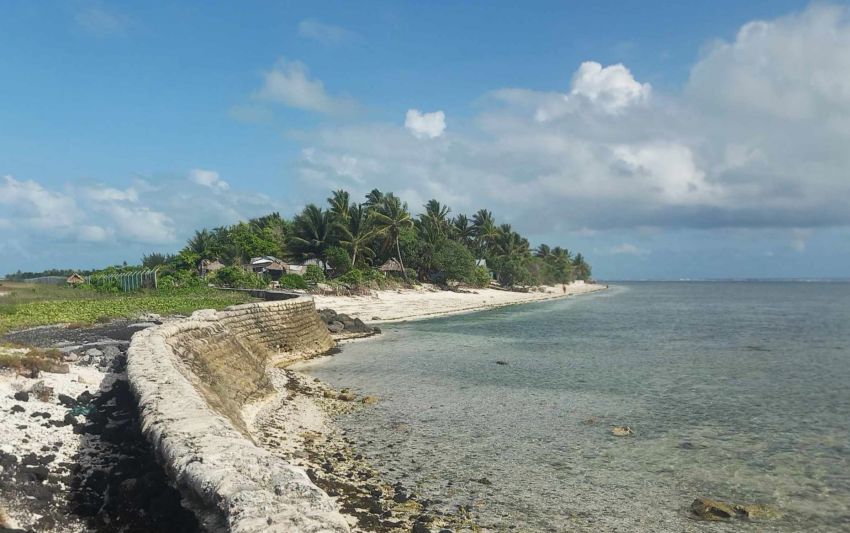
The Anthony Albanese Labor government has taken up the call by some environmental lobby groups and trade unions to develop policies that can turn Australia into a renewable energy, or green, “superpower”.
But, as I argued earlier, any imagining of a green future needs to break imperial and colonialist power relations with the Global South.
It is impossible to address the global climate emergency within the existing power relations.
Labor intends to reach its renewable energy superpower plan by throwing hundreds of billions of dollars — through its Future Made in Australia policy — to the billionaire class to help them profit from any transition to renewables.
It is doomed to fail.
For a start, the arms industry has been promised a hefty share of these subsidies and tax concessions by PM Albanese.
Brazenly, gas industry corporate giants like INPEX and Chevron are lobbying hard for the expansion of gas mining and export to 2050 and beyond, as part of the push to become a “renewable energy superpower”.
INPEX, the biggest Japanese direct investor, in its submission to a parliamentary inquiry into the Future Made in Australia Bill 2024 and the Future Made in Australia (Omnibus Amendments No. 1) Bill 2024, demanded “incentives” to expand its gas mining and exports to the Asia-Pacific and for carbon-capture technologies.
The fossil fuel corporations are keenly aware that a program of subsidies to a few billionaires to pursue their pet renewable energy projects can also be a handy distraction from Labor’s gas expansion plan.
Such projects may even provide them with rich opportunities to “carbon-offset” their gas mining and export expansion.
Banks have also found back door ways to fund the expansion of the fossil fuel industry (to the tune of $2.5 billion last year) while pretending to be good climate citizens.
Dreaming of a corporate profit-shaped and -led road to a safe climate future is a dead end.
What would an alternative vision look like?
It would be to turn Australia into a green, good neighbour, that helps other countries (particularly in the region) make a rapid transition to renewable energy away from dependence on fossil fuels.
Perhaps, such programs could be modelled on Cuba’s medical internationalism?
Instead of sending gunboats and training death squads to support right-wing and military dictators (as the United States and its imperialist allies have done), Cuba since the 1960s has sent tens of thousands of medical personnel to Latin America, Africa, Asia and the South Pacific. They have even helped in remote First Nations communities in Australia.
Timor-Leste President José Manuel Ramos-Horta is highly appreciative of Cuba’s medical aid to his country and acknowledged the valuable contribution that Cuban doctors still play in his country’s health system soon after it won its independence.
“Up to 700 Timorese medical students were sent to study in Cuba at that time,” he told the Timor-Leste news agency, Tatoli, in April. He also acknowledged Cuba’s help in fighting illiteracy since 2002.
Cuba used the advances it made in health care and education (Cubans now enjoy a three year longer life expectancy than the United States) to extend its medical services to other countries.
One of the “comparative advantages” say the lobbyists who promote the dream of Australia becoming a green superpower is Australia’s position as a “global leader in renewable energy research and development”.
Based on past practice, exploiting this for corporate profit-making will, most probably, set back the race to address the global climate emergency, as well as distort and derail research and development into renewables.
De-linking this technological advantage from corporate profit and deploying it as people-to-people cooperation in the region will do more to assure peaceful regional relations and save hundreds of billions of dollars Labor is now pouring into helping the US preserve its global military domination.
Pacific Island activists in 350.org recently reminded Labor that for their very survival, fossil fuels must be phased out. They said “to thrive in the face of crisis, the Pacific also needs access to affordable renewable energy”.
The Pacific Climate Warriors are calling for large-scale renewable energy to be built, which focuses around the needs of their communities. It would be “a world where no one gets left behind”, they said, adding that they should not have to choose between powering homes and surviving the next king tide.
The Pacific Climate Warriors have put the following demands to the Labor government:
“Power up safe and equitable renewable energy for communities. We demand a sustainable and ethical approach to managing the Just Transition. One where communities are engaged at all levels of decision making and vulnerable peoples are afforded access. We need a rapid but safe transition to renewable energy, where its costs and benefits are equitably distributed to communities.
“Ensure job security for workers. The government must invest in a new employment ecosystem and provide training through capacity building and greater cross-regional collaboration.
“Establish fair training and migration pathways for Pacific Islanders. To ensure Pacific migration pathways are reformed to include training opportunities in renewable energy technologies that can support a rapid transition in Australia and the Pacific region.
“Finance for a Fossil Fuel Free Pacific. We demand a commitment from the government to end subsidies and financing of fossil fuels and other carbon-emitting extractive industries, and to increase funding towards the renewable energy transition for the Australia and Pacific region.
“Raise climate goals in 2025. Commit to the 2015 Paris Agreement and raise ambition on Australia’s climate goals at COP30. Despite what government comes into power in the 2025 Federal Election, the commitment to those climate goals should be non-negotiable.”
Meeting such demands from our closest Pacific Islander nations would provide Australia with the bedrock to become a green good neighbour.